Finanzintermediäre und die Realwirtschaft
Diese Forschungsgruppe zielt darauf ab, den Zusammenhang zwischen Finanzintermediation und realer Aktivität zu verstehen, indem sie mehrere potenzielle Kanäle untersucht, wobei sie sich sowohl auf die direkten Auswirkungen auf Unternehmen unter Verwendung umfangreicher Mikrodaten als auch auf das Verständnis des Zusammenhangs zwischen Kreditmärkten und gesamtwirtschaftlicher Aktivität konzentriert.
Forschungscluster
Produktivität und InstitutionenIhr Kontakt

- Abteilung Finanzmärkte
Referierte Publikationen
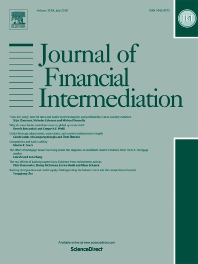
Hold-up and the Use of Performance-sensitive Debt
in: Journal of Financial Intermediation, April 2016
Abstract
We examine whether performance-sensitive debt (PSD) is used to reduce hold-up problems in long-term lending relationships. We find that the use of PSD is more common in the presence of a long-term lending relationship and if the borrower has fewer financing alternatives available. In syndicated deals, however, the presence of a relationship lead arranger reduces the use of PSD because a lead arranger has little incentive to hold-up a client. Further supporting the hypothesis that hold-up concerns motivate the use of PSD, we find a substitution effect between the use of PSD and the tightness of financial covenants.
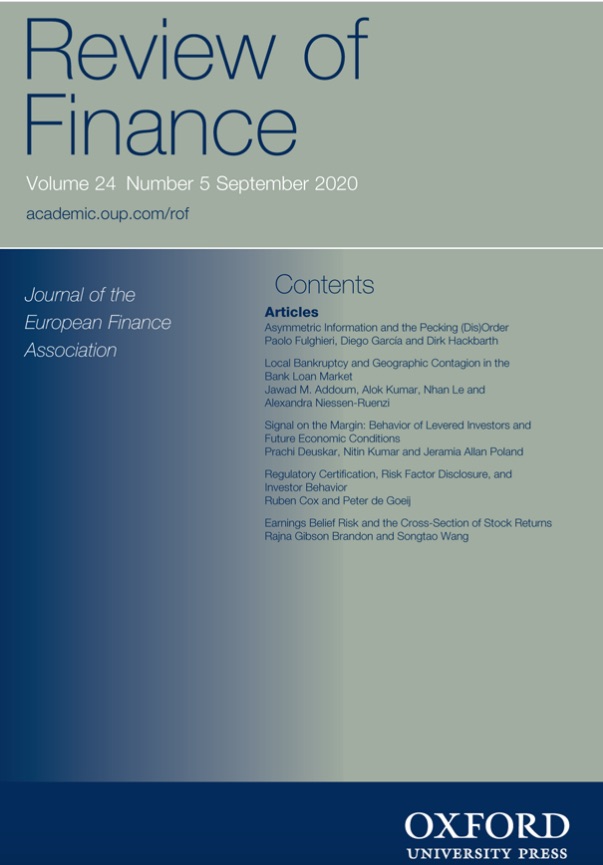
The Impact of Credit Default Swap Trading on Loan Syndication
in: Review of Finance, Nr. 1, 2016
Abstract
We analyze the impact of credit default swap (CDS) trading on bank syndication activity. Theoretically, the effect of CDS trading is ambiguous: on the one hand, CDS can improve risk-sharing and hence be a more flexible risk management tool than loan syndication; on the other hand, CDS trading can reduce bank monitoring incentives. We document that banks are less likely to syndicate loans and retain a larger loan fraction once CDS are actively traded on the borrower’s debt. We then discern the risk management and the moral hazard channel. We find no evidence that the reduced likelihood to syndicate loans is a result of increased moral hazard problems.
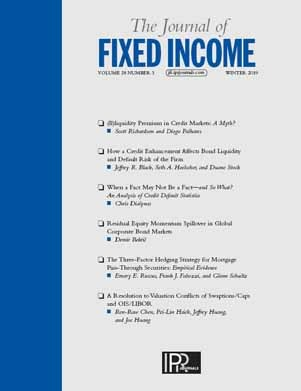
Determinants of the Size of the Sovereign Credit Default Swap Market
in: Journal of Fixed Income, Nr. 3, 2016
Abstract
We analyze the sovereign credit default swap (CDS) market for 57 countries, using a novel dataset comprising weekly positions and turnover data. We document that CDS markets—measured relative to a country’s debt—are larger for smaller countries, countries with a rating just above the investment-grade cutoff, and countries with weaker creditor rights. Analyzing changes in credit risk, we find that rating changes matter but only for negative rating events (downgrades and negative outlooks). In particular, weeks with downgrades and negative outlooks are associated with a significantly higher turnover in the sovereign CDS market, even after controlling for changes in sovereign CDS spreads. We conclude that agencies’ ratings are a major determinant of the size of the sovereign CDS market.
Arbeitspapiere
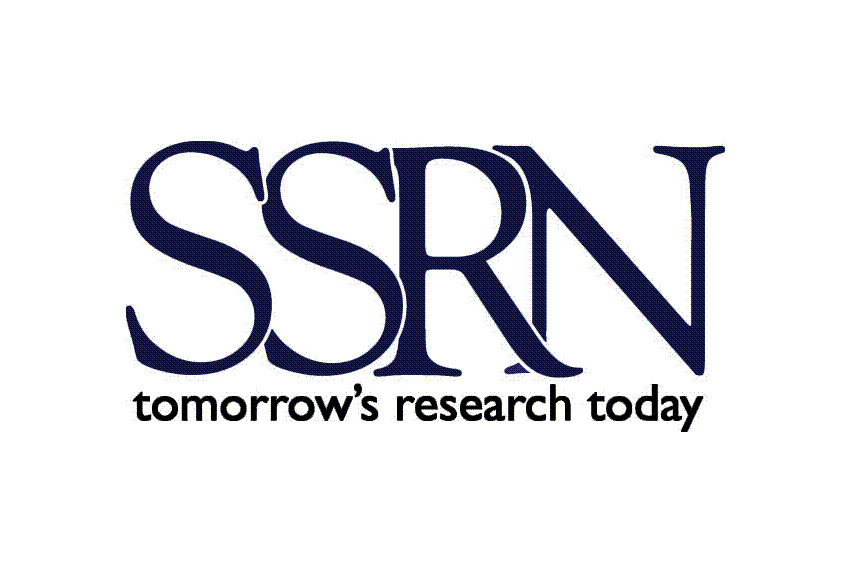
Too Poor to Be Green? The Effects of Wealth on the Residential Heating Transformation
in: SSRN Working Paper, 2024
Abstract
<p>Using the near-universe of Danish owner-occupied residential houses, we show that an exogenous increase in wealth significantly increases the likelihood to switch to green heating. We estimate an elasticity of one at the median of the wealth distribution, i.e., a 10% increase in wealth increase raises green heating adoption by 10%. Effects are heterogeneous along the wealth distribution: all else equal, a redistribution of wealth from rich households to poor households can significantly increase green heating adoption. We further explore potential channels of our findings (pro-social preferences, financial constraints, and luxury goods interpretation). Our results emphasize the role of economic growth for the green transition.</p>
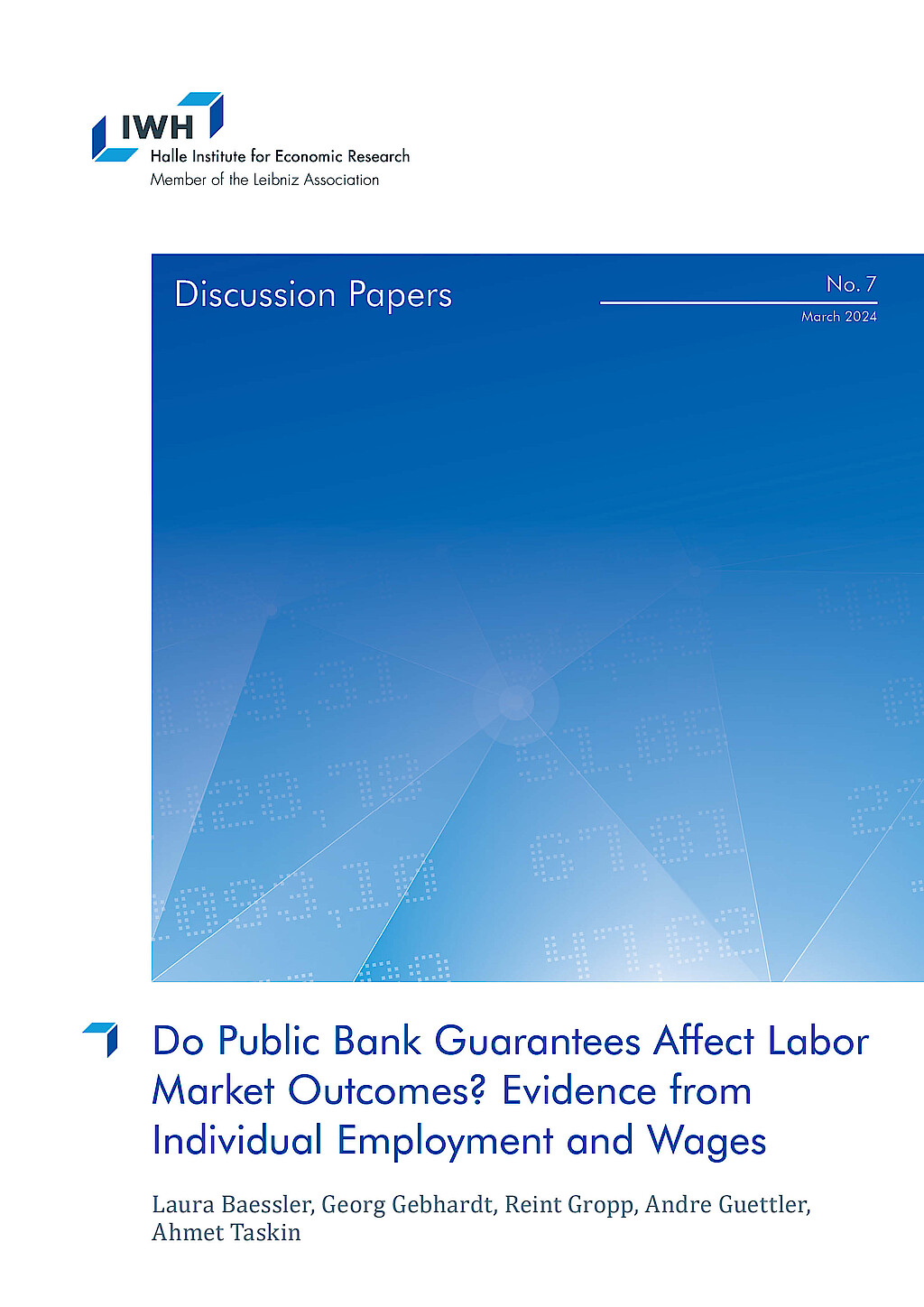
Do Public Bank Guarantees Affect Labor Market Outcomes? Evidence from Individual Employment and Wages
in: IWH Discussion Papers, Nr. 7, 2024
Abstract
<p>We investigate whether employees in Germany benefit from public bank guarantees in terms of employment probability and wages. To that end, we exploit the removal of public bank guarantees in Germany in 2001 as a quasi-natural experiment. Our results show that bank guarantees lead to higher employment, but lower wage prospects for employees after working in affected establishments. Overall the results suggest that employees do not benefit from bank guarantees.</p>

Out of Sight, out of Mind: Divestments and the Global Reallocation of Pollutive Assets
in: SSRN Working Papers, 2023
Abstract
<p>Large emitters reduced their carbon emissions by around 11-15% after the 2015 Paris Agreement (“the Agreement”) relative to public firms that are less in the limelight. We show that this effect is predominantly driven by divestments. Large emitters are 9 p.p. more likely to divest pollutive assets in the post-Agreement period, an increase of over 75%. This divestment effect comes from asset sales and not from closures of pollutive facilities. There is no evidence for increased engagements in other emission reduction activities. Our results indicate significant global asset reallocation effects after the Agreement, shifting emissions out of the limelight.</p>

Capital Misallocation and Innovation
in: SSRN Solutions Research Paper Series, 2020
Abstract
This paper documents that "zombie" lending by undercapitalized banks distorts competition and impedes corporate innovation. This misallocation of capital prevents both the exit of zombie and entry of healthy firms in affected industries adversely impacting output and competition. Worse, capital misallocation depresses patent applications, particularly in high technology- and R&D-intensive sectors, and industries with neck- and-neck competition. We strengthen our results using an IV approach to address reverse causality and innovation survey data from the European Commission. Overall, our results are consistent with externalities imposed on healthy firms through the misallocation of capital.








